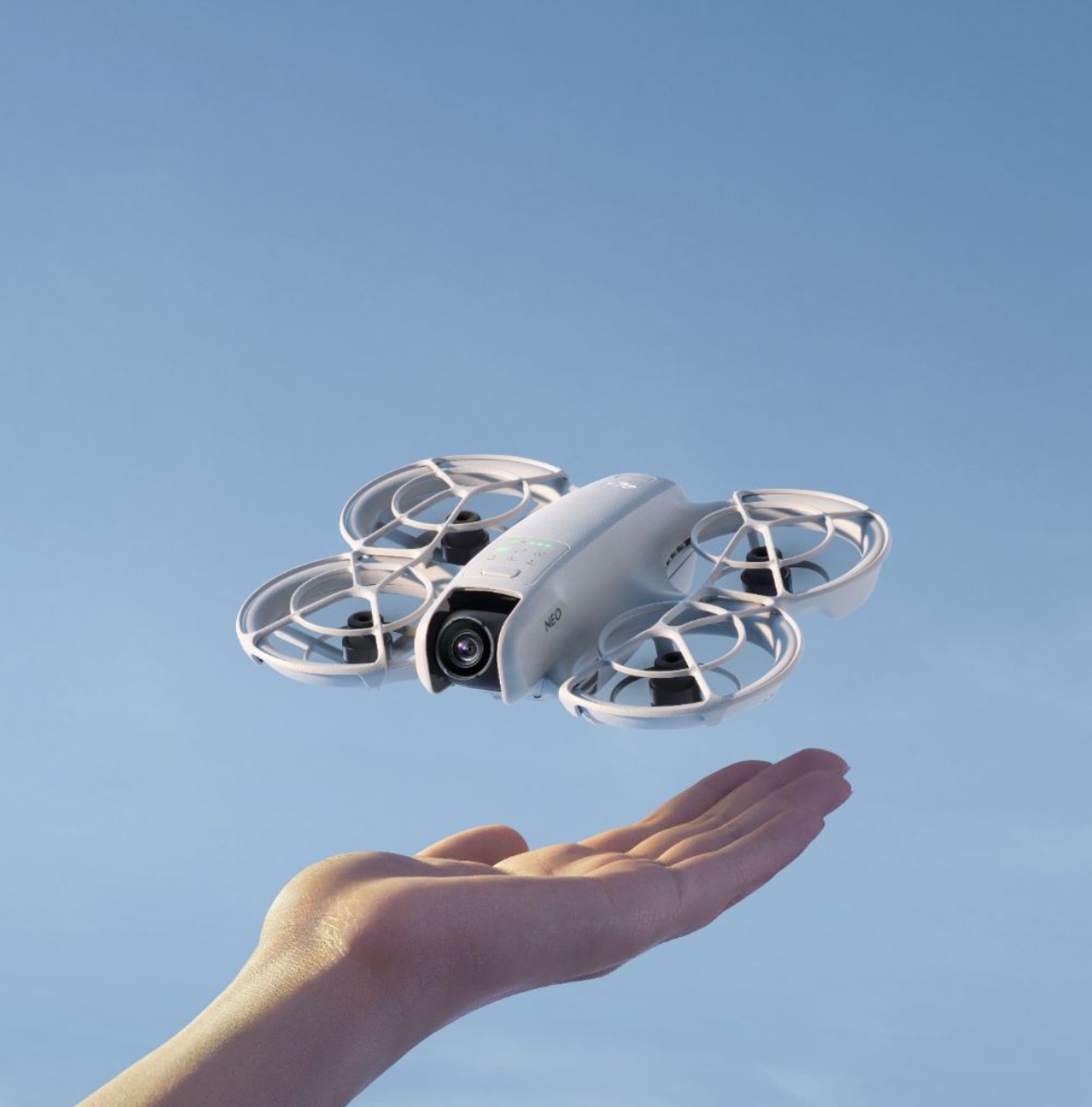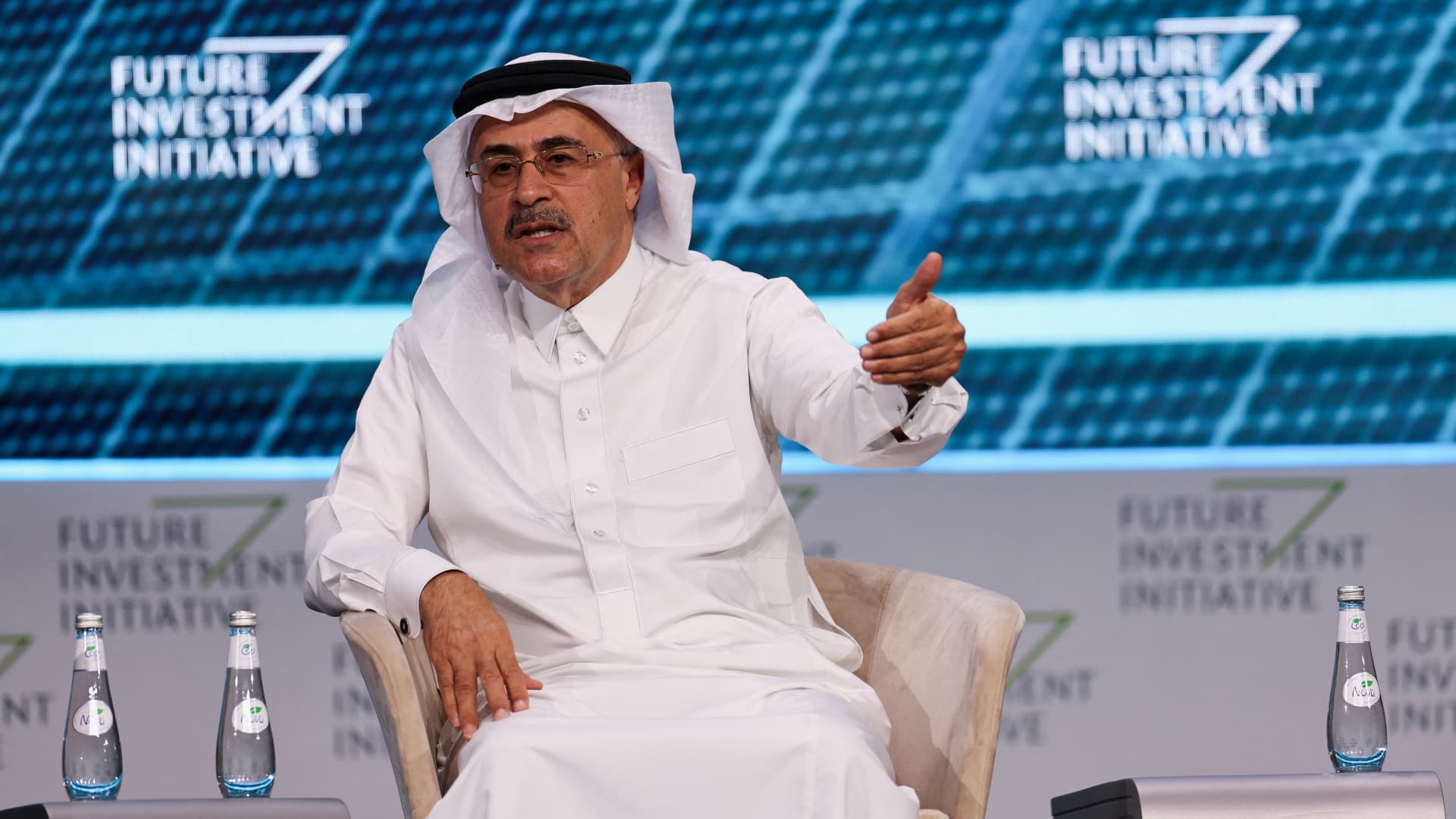Carlo ratti’s alpine structure to debut at 2026 winter olympics
Carlo Ratti Associati introduces the self-sufficient wooden alpine bivouac shelter that can produce electricity and collect water on its own in the Alps. The project is a…

Carlo Ratti Associati introduces the self-sufficient wooden alpine bivouac shelter that can produce electricity and collect water on its own in the Alps. The project is a…

A nutritious diet does far more than aid digestion; it can be a powerful defence against serious diseases such as colon cancer. Also called colorectal cancer, the disease occurs when abnormal cells form in the colon or rectum and can spread to…

DJI’s upcoming Neo 2 drone is reportedly priced from $229, with a Fly More Combo at $449, according to DroneXL and leaker Jasper Ellens. The drone is expected to launch on Oct. 30. It is said to weigh 135 grams and use a 1/1.3-inch…

President and CEO of Saudi’s Aramco, Amin H. Nasser, speaks during the Future Investment Initiative (FII) in Riyadh, Saudi Arabia October 29, 2024.
Hamad I Mohammed | Reuters
Think of Saudi Arabia and the first thing that comes to mind might be its massive, oil-derived wealth.
While oil continues to drive Saudi Arabia’s economy, the kingdom is now expanding into areas such as artificial intelligence, tourism and sports to diversify its growth avenues.
According to Saudi Arabia’s Minister for Investment Khalid Al Falih, more than half — 50.6% — of the Saudi economy is now “completely decoupled” from oil.
“This percentage is growing,” Al Failh told CNBC’s Dan Murphy, adding that government revenue used to be almost completely derived from oil money, but now, 40% of its revenue comes from sectors and sources that “have nothing to do with oil.”
“We’re seeing great results, but we’re not satisfied. We want to do more. We want to accelerate the kingdom’s diversification and growth story,” he said.
Saudi Arabia is doubling down on fast-growing sectors such as artificial intelligence, naming it one of its new growth areas, with Al Failh saying the kingdom will be a “key investor” in developing AI applications and large language models. Saudi Arabia would also build data centers “at a scale and at a competitive cost not achieved anywhere else.”
“AI has emerged [in] the last three, four years, and it’s definitely going to define how the future economy of every nation. Those who invest will lead, and those who lag behind, unfortunately, will lose,” he pointed out.
On Monday, AI chip company Groq’s CEO, Jonathan Ross, told CNBC that for AI infrastructure thanks to its energy surplus. The country could see more than $135 billion in gains by 2030 thanks to AI, according to PwC.
Saudi Arabia’s quarterly budget performance report revealed that total government revenue for the first half of 2025 came in at 565.21 billion Saudi riyals ($150.73 billion), with oil making up 53.4% of the country’s overall revenue, down from 67.97% in the same period in 2019.
In 2024, the country reported a 1.3% rise in full-year GDP, mainly driven by a 4.3% increase in non-oil segments. Oil activity, on the other hand, fell 4.5% year on year.
The country’s sovereign wealth fund — the Public Investment Fund — has acquired stakes in tech giants, video game publishers and football clubs as it uses oil revenues to diversify into other sectors.
PIF has acquired stakes in video-game heavyweight Electronic Arts, establishing the SoftBank Vision Fund with Masayoshi Son’s SoftBank Group Corp in 2017, and a takeover of English Premier League club Newcastle United in 2021.
When asked if declining oil prices were piling pressure on Saudi Arabia’s economy and government revenue, Al Falih said that the country was not scaling back budgets and there were no cuts to public spending.
Oil prices have fallen in 2025, with Brent crude spot prices down 13.4% so far this year, according to FactSet. Saudi Arabia’s oil revenue slid 24% in the first half of 2025 from a year earlier.

The government will continue to address all activities that require government spending, Al Falih said, noting that the PIF has grown sixfold since its creation and that the country was approaching nearly $1 trillion in capital deployed across sectors of strategic interest.
Tourism has also been a key growth area for Saudi Arabia. Ahmed Al-Khateeb, the country’s tourism minister, told CNBC that the sector’s share in GDP had grown to 5% in 2024 from 3% in 2019.
“We are [opening] resorts, new airlines, new airports, and the numbers are growing, and we are focusing on countries and visitors that are coming from outside to experience our great culture,” Al-Khateeb highlighted.
The tourism minister also expressed confidence that the sector could contribute 10% of GDP by 2030, aiming to raise it to 20% eventually.
“This 20% will help Saudi Arabia to diversify the economy and make it more sustainable,” he added.



Working with Professor Kenji Kabashima at Kyoto University’s Graduate School of Medicine, researchers at Kao’s Skin Care Research Laboratory have shown that sensitive skin has nerve fibres extending unusually deep into the stratum corneum…